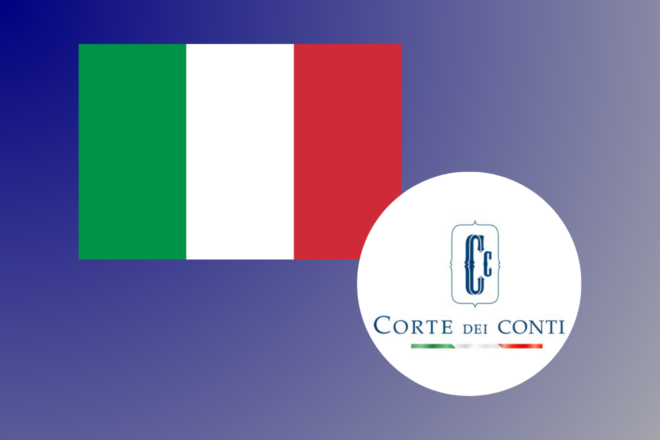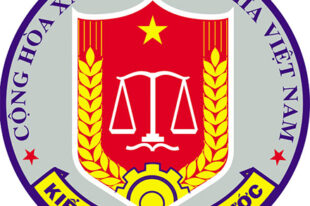The specificities of the jurisdictional activities of the Italian Corte dei conti

Author: Mauro Orefice, President of the Chamber for the Performance Audit on the Management of the State Administrations, Head of the International Affairs Office
Background on Jurisdictional SAIs
The model of jurisdictional supreme audit institution (SAI) is recognized as that of an institution which is able to carry out all types of audit – performance, compliance, and financial audits – and, in addition, is invested with the power to issue formal rulings directly sanctioning the liability of managers of public funds when its audit findings show some irregularities, or when such irregularities are referred to the SAI by a third party.
The relevance of jurisdictional powers has led to the establishment of a Forum – under the joint chairmanship of the French Cour des comptes and the Contraloria General de la Republica of Chile.
On November 13th, 2015, the first international Forum of SAIs with jurisdictional activities within INTOSAI adopted a solemn declaration that defined their identity, listed the values that characterize them and committed them to common actions to promote their model.
At XXIII INCOSAI, the plenary meeting of the Forum adopted the first norm on jurisdictional activities: INTOSAI-P50 establishing 12 principles that national legal framework shall provide the SAIs to undertake jurisdictional activities.

The Corte dei conti’s Jurisdictional functions
The SAI of Italy (Corte dei conti) carries out audit and judicial functions and holds a special position within Italy’s judicial system. It has its own jurisdiction which is separate from administrative and civil courts with regard to its functions. The judicial functions have a clear and strong basis in the Italian Constitution and related laws and independence is one of its most important characteristics.
Pursuant to Article 103 of the Italian Constitution, the Corte dei conti has jurisdiction in matters of public accounting and in any other matters laid down by the law.
The Corte dei conti holds jurisdiction on the following matters:
- Administrative and accounting liability of civil servants (fonctionnaires), public agents or private entities managing public funds (money, goods and services, assets, etc.) for the benefit of public interest for any damage they caused to the State and the European Union or to any public entity by fraud or gross negligence.
- Management and reports of accountants and other public agents managing public money who are liable to render accounts. (i.e., accounts made by public, management, and government or local bodies accountants. The Corte dei conti has authority to audit individuals who act as public accountants but are not certified as such).
- Further litigations in accounting matters established by law (Article 172 of the Code of Accounting Procedure).
- Litigation arising from acts bestowing or modifying pensions.
The Code of Accounting Procedure (Legislative Decree no. 174/2016) duly and clearly defines the conduct of the different trials before the Jurisdictional Chambers of the Corte dei conti such as the responsibilities incumbent to persons accountable before the SAI and the relevant sanction regime applicable; the qualification and the amount of the alleged damages, the right of access to the investigative file (except for secrets or other parties’ defenses) by persons accountable.
The main principles of the trial
The Corte dei Conti’s accounting process implements the principles of equality of parties, impartiality, adversarial and due process provided for in Article 111, Paragraph 1 of the Italian Constitution.
Independence
The Corte dei conti is autonomous and independent from all the other powers of the Italian State (Italian Constitution, Article 100, para. 3). Its members are judges, they carry out their functions for the benefit of public interest, independently, honestly and avoiding any undue influence. They protect information and confidentiality, while taking into account the need for transparency and accountability.
Judicial powers
The main judicial powers of the Corte dei conti are aimed at assessing administrative and accounting liabilities of civil servants (fonctionnaires), public agents, private entities managing public “funds” (money, goods and services, assets, etc.) for any damage caused to the State or any other public body and the European Union by fraud or gross negligence, in order to safeguard the integrity and efficient use of public resources as well as the interests of public entities and citizens.
All damages caused by unlawful conduct or omission can be taken into account (e.g. corruption; fraud in the management of public funds – European, national, regional and/or local –; infringements or unlawful conduct or omission in directing and/or monitoring performance of public works, supply and service agreements causing breach of contracts, unlawful additional payments; irregular or omitted tax audits or omitted application of sanctions as well as the omitted report of committed crimes in exchange of bribes, consisting in money or other utilities for the officers involved or for third parties, etc.).
A privileged actor: The Public Prosecutor Office of the Corte dei conti
The administrative liability action can only be brought by the Regional Prosecutors of the Corte dei conti before the Corte dei conti’s Jurisdictional Chambers, and complaints are the basis for their activities. In this regard, competent authorities are subject to several specific obligations to report losses of public funds to the Regional Prosecutor’s Office, in cases where public officials are involved.
The Criminal Prosecutor has the duty to report to the Regional Prosecution Office of the Corte dei conti of any investigation or case which allegedly caused a loss to public funds. Complaints can arise from any other sources: politicians, citizens, anonymous, whistle-blowers (the law provides for the protection of the worker who reports unlawful conduct of which they have become aware within the workplace), press articles, etc.
The Public Prosecutor has full access to documents and information held by administrative or judicial bodies and, if necessary for the investigation, can request (through its decrees): exhibition of documents, hearings of informed people, inspections and direct assessments, seizure of documents, technical advice. In a lawsuit for damages brought by one of the Public Prosecutors at the Corte dei conti (an indictment contained in a summons), at the end of investigation proceedings which may involve police forces such as the Italian Financial Police (Guardia di Finanza), the accused person can be held liable only if all the following conditions are met as regards the illegality/unlawfulness of the allegedly wrongful conduct or omission:
- The harm suffered by the budgets/resources of the State or of a public body (including European Union funds) must be actual, certain and not merely potential;
- There must be evidence of a direct causal link between the act and the damage alleged to have been suffered;
- There must be evidence of a fraud or a gross negligence in the conduct of the accused person, and;
- There must be a “qualified relationship” – an employment relationship, an empowerment, an affiliation or an ad hoc connection – between the damaged public body and the person who allegedly caused the damage. Private people and undertakings can be accused if they enter into this “qualified relationship” as they operate for the benefit of the public interest.
The Indictment and the Judgment
The indictment constitutes the final detailed statement of charges setting out in detail the facts, the accused persons, the existence of the cumulative conditions to bring the action before the Court and the qualification and amount of damages.
The Corte dei conti sets the date for the first hearing. Then the accused person and his lawyer are to receive a copy of that indictment together with a summons to that hearing.
The lawyer then has a period to prepare the defence.
After the trial, the Corte dei conti issues its first instance judgment which is made public, respecting the secrecy and restrictions linked to confidentiality that are legally mandatory as well as the protection of personal data.
The parties can appeal the sentence before the Central Chambers of Appeal.





